Regular medical examinations are a necessary measure to identify pathologies in the human body. It is especially important to conduct a medical examination for workers in some areas of activity. Any deviations can threaten the health and life of not only the employee, but also other people.
What kind of workers need physical examinations?
Workers subject to periodic medical examination:
- employees associated with traffic;
- involved in hazardous or heavy work;
- attracted to work in the Far North;
- emergency services, security officers;
- food industry workers;
- underground and high-altitude workers;
- athletes;
- educational staff;
- persons under the age of 18;
- working on a rotational basis, etc.

Any deviations in the well-being of these employees can negatively affect not only labor productivity, but also the state of their own health and the health of others.
Legal framework
The need for medical examinations is stipulated at the legislative level. The following acts regulate this need:
- The Labor Code of the Russian Federation (Articles 69, 212, 213).
- Order of the Ministry of Health of Russia dated April 12, 2011 No. 302n.
- Industry documents, sanitary standards.
Types of medical examinations
Medical examinations vary in purpose and frequency. The following types of medical examinations are usually distinguished.
- Preventive.
- Preliminary.
- Periodic
- Pre-shift and pre-trip.
- Post-shift and post-trip.
- Extraordinary.
Preventive examinations
Preventive medical examinations are carried out for various categories of citizens in order to identify possible deviations in the state of health and to prevent the development of diseases. In addition, thanks to this inspection, the health group to which they belong is established for citizens.
Preventive medical examinations include the following examination methods:
- questionnaire - a general survey on the state of health, the presence of bad habits, etc .;
- anthropometry - measurement of height, weight and other anthropometric indicators;
- pressure measurement;
- analysis fence;
- fluorography of the lungs;
- electrocardiogram;
- examination by a general practitioner.
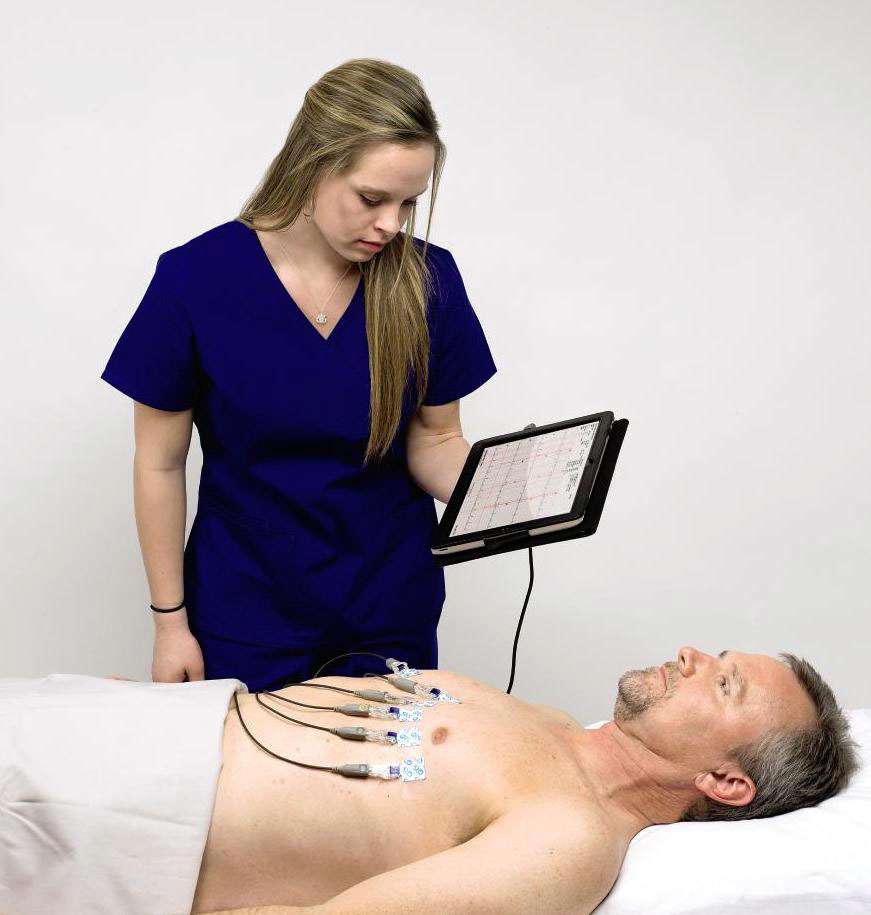
Health Groups:
- I group: absolutely healthy people;
- Group II: people with minor deviations in health status;
- Group III: people with serious diseases, including chronic ones.
Preliminary Examinations
Usually this medical examination is carried out when hiring a new employee. It is necessary to determine possible deviations in the state of health of the employee. Some deviations may make his employment impossible, therefore the employer is obliged to insist on passing the examination. This is a prerequisite for concluding an employment contract in some areas of activity.
The categories of employees were indicated above for which a physical examination upon employment is mandatory.
Periodic examinations
The next type of medical examination is called periodic. As the name implies, employees are required to undergo this type of examination at the frequency established by labor law. The frequency of the conduct depends on the particular profession and working conditions. The minimum period between examinations is no more than two years.
The frequency of medical examinations for some professional industries is indicated in the table.
| Once a year | Employees of grocery stores, catering, food production, pharmacy staff |
| Service workers (hotels, sports centers, laundries, beauty salons) | |
| Employees of the blast and fire industry, emergency services, underground and high-altitude work | |
| Workers in kindergartens, schools, boarding schools, kindergartens and sanatoriums | |
| 1 time in 2 years | Underwater work, land transport management, work on machines, with electrical equipment |
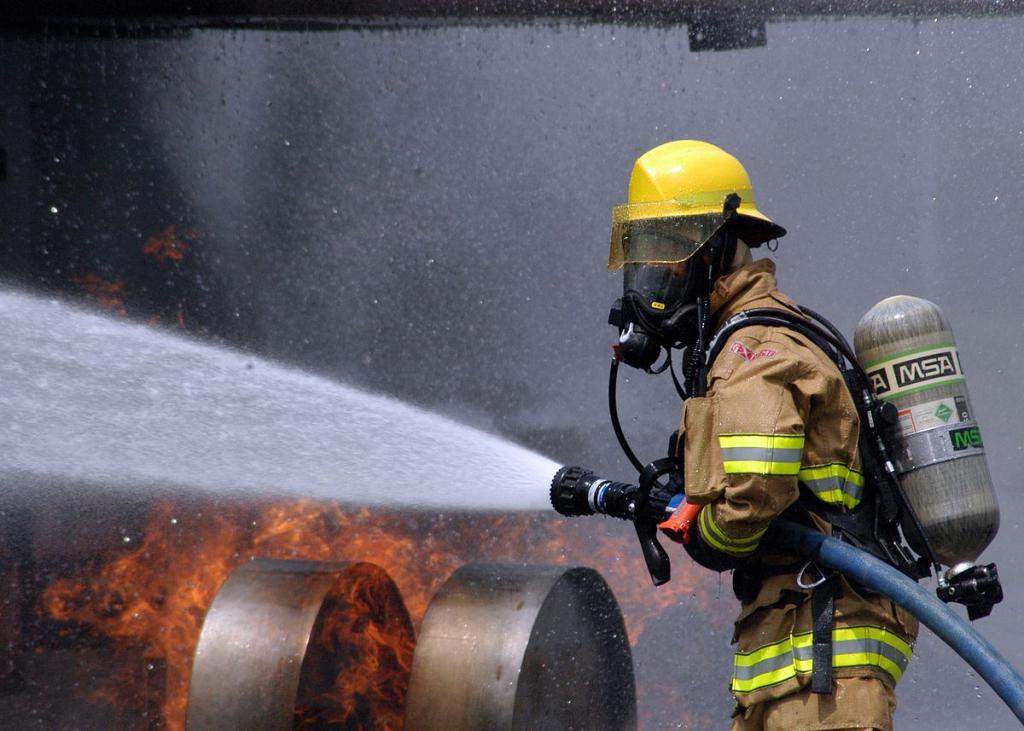
Mandatory periodic medical examinations show the dynamics of the employee’s health status, identify the presence of diseases incompatible with the profession, and take the necessary measures to maintain health and rehabilitation.
Pre-shift and pre-trip inspections
In a number of professions, especially those related to emotional or psychological costs, as well as requiring a high concentration of attention, a medical examination for an employee should be carried out before each exit to work.
Especially thorough pre-shift and pre-trip medical examination is carried out for drivers, drivers, pilots. The poor health of these employees or other reasons for not being ready to fully perform their duties can threaten the health of others. The pre-shift and pre-trip medical examinations may include, but are not limited to, testing for the use of alcohol, narcotic and psychotropic substances.
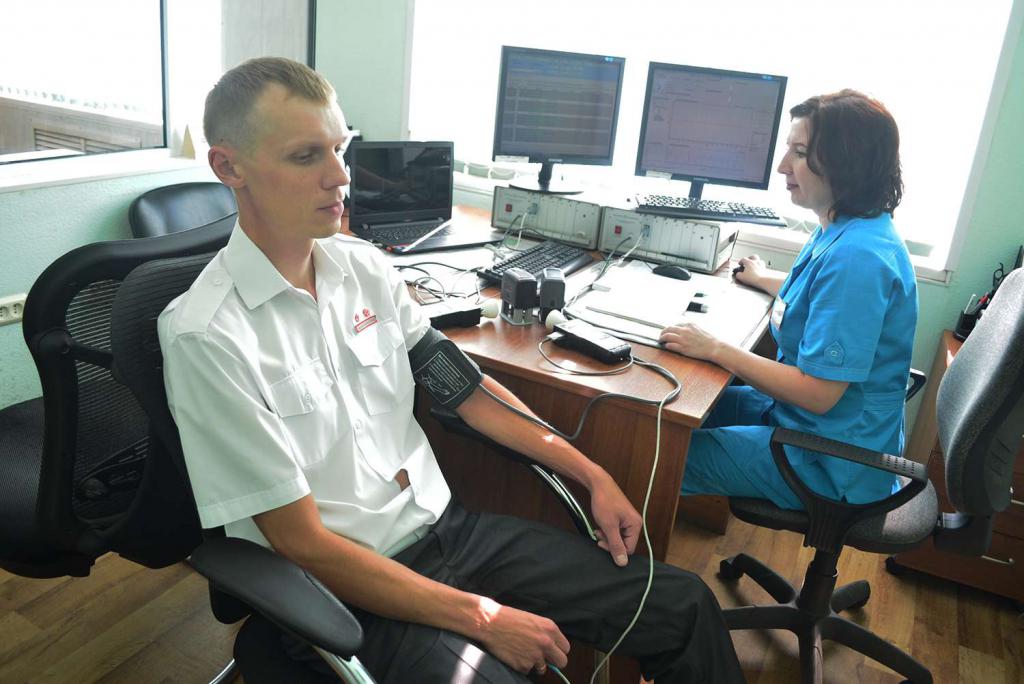
This type of physical examination is carried out at the end of a shift or flight and reveals the fact of the influence of harmful factors of production on the employee, the presence of acute occupational disease and so on.
Extraordinary examinations
An extraordinary inspection is unscheduled and may take place earlier than scheduled. It is carried out at the request of the employee himself, if he suspects the development of an occupational disease in himself. It can also be performed if a serious infectious disease occurs.
These are the main types of medical examinations. Each examination should be carried out carefully and in accordance with the objectives, since neglect of passing these examinations can lead to sad or tragic consequences.
Payment for medical examinations
Regardless of the type of survey, the costs of its conduct are entirely borne by the employer. On days when an employee is absent from the workplace due to a medical examination, the average salary is retained. If the employee independently paid for the examination, then he can write an application for compensation of all costs.
Some clinics offer discounts to survey companies. The employee’s medical record is kept by the employer.
The procedure for conducting medical examinations
The algorithm for passing a physical examination is usually clearly established by law and organization. The procedure for the employer, employee and medical organization is given below.
Actions by the employer:
- compilation of a list of employees subject to mandatory examination;
- sending the list to Rospotrebnadzor;
- setting dates for the examination with the clinic;
- providing a list of employees required for inspection to a medical organization (at least two months before the agreed date);
- familiarization of employees with the schedule of physical examinations;
- execution and issuance to employees of a referral for a medical examination;
- providing the results of a physical examination to the Social Insurance Fund of the Russian Federation.
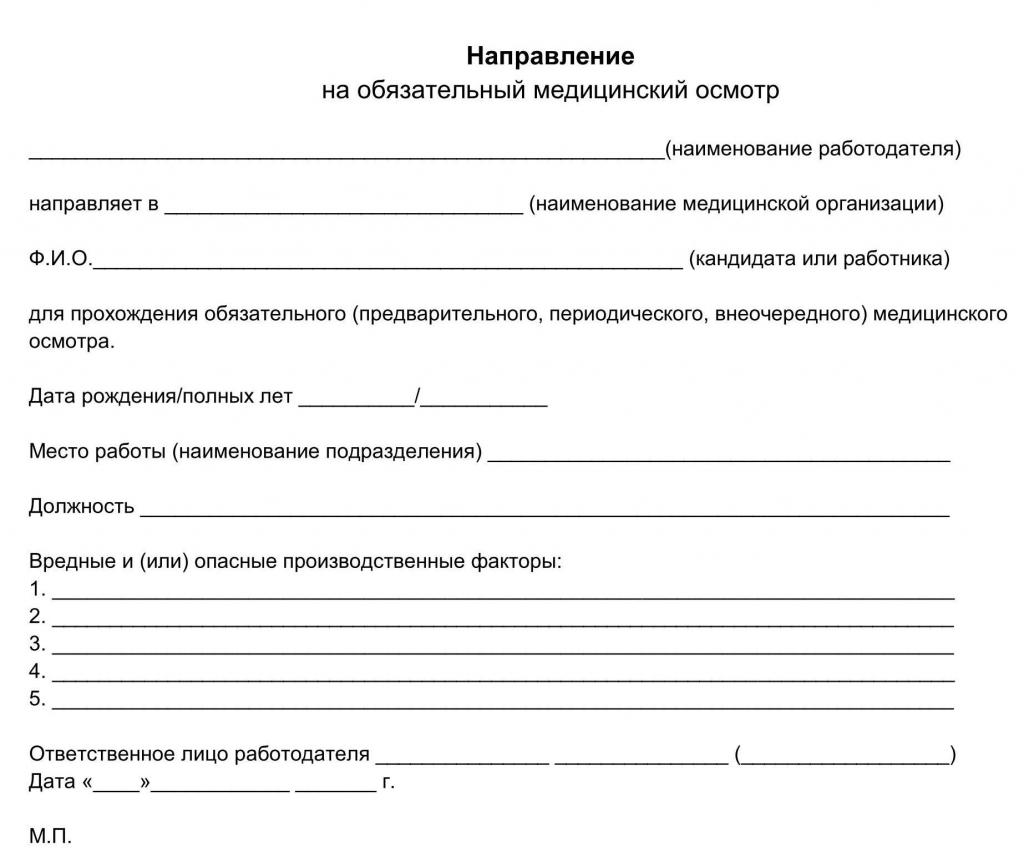
Actions by the medical organization:
- scheduling a physical examination and coordinating it with the employer and the clinic management;
- formation of a medical commission;
- drawing up a medical record of patients;
- medical examination;
- filling out a conclusion on the results of the examination and issuing a health passport;
- issuing referrals for additional professional examinations (for some professions);
- providing final data to the employer.
Actions by the employee:
- familiarize yourself with the schedule of the medical examination;
- prepare for the examination, collect the necessary tests;
- come to a medical organization and undergo a physical examination and, if necessary, additional examinations.
What kind of doctors do employees go through?
The standard list, mandatory for passing, includes the following specialists:
- therapist;
- neurologist;
- ophthalmologist;
- otolaryngologist;
- endocrinologist;
- gynecologist (women only).
In addition, an examination can be scheduled with a narcologist, psychiatrist, venereologist, surgeon, dentist, dermatologist, etc.
In addition to examining specialists, employees must undergo such examinations:
- electrocardiogram;
- fluorography;
- general analysis of blood and urine;
- smears on flora and cytology (women only).
Additional studies include a biochemical blood test, an intestinal infection test, and an ultrasound scan.
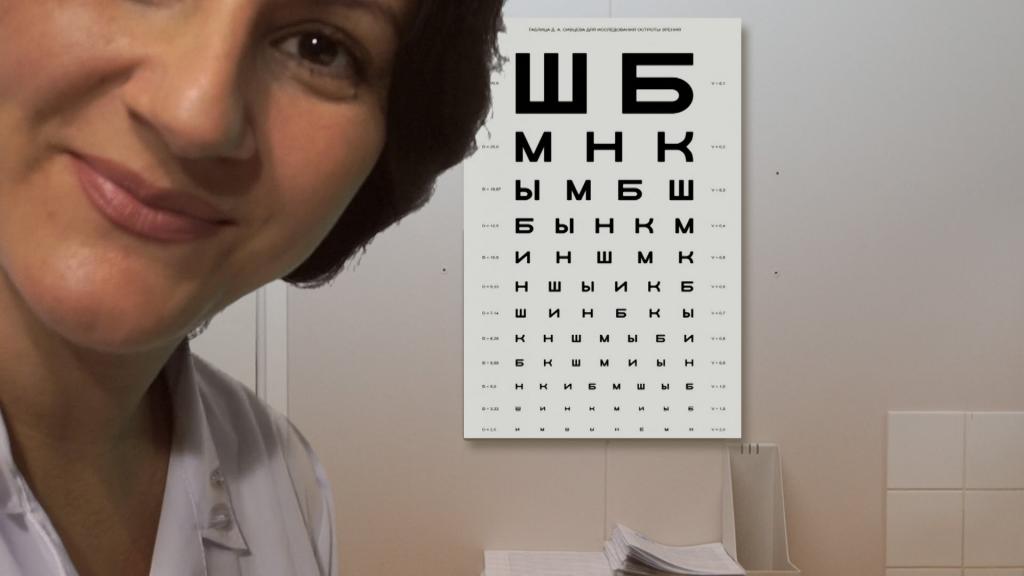
The consequences of a physical examination
If the employee conscientiously passed all the required specialists, and there were no pathologies or restrictions for work, he can continue to continue to fulfill his duties or be enlisted in the state (during a preliminary examination).
An employee who has neglected to undergo a medical examination, the employer has the right to remove from work.
In case of revealing deviations in the state of health, which can affect the labor productivity or further well-being of the employee, he is suspended from work. If the suspension period is not more than four months, then upon its expiration the employee may resume labor activity. In any other case, the employee is dismissed in accordance with the law.
If the organization has vacancies that can be provided to the employee and are compatible with his state of health, the employer must offer them to the employee.
An employer who neglects the results of a physical examination will be punished in accordance with the law.

Main conclusions:
- a physical examination is a necessary measure for representatives of many professions;
- physical examination is preventive, preliminary, periodic and unscheduled;
- the procedure for passing a medical examination is strictly regulated;
- Failure to comply with legislation regarding the passage of surveys and the application of their results will have consequences for both the employee and the employer.
